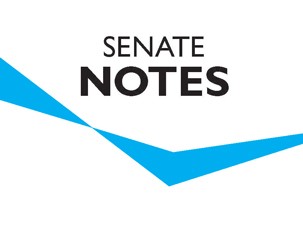Three new co-op programs approved
During its Nov. 1 meeting, Senate approved the expansion of Concordia’s co-operative education program into three more departments in the Faculty of Arts and Science: journalism, political science, and sociology and anthropology.
Senate also approved the expansion of the Department of Physics’ co-operative education program, which had been offered only to students in the BSc specialization. It will now be offered to all of the department’s full-time students who meet the academic requirements.
The addition of the Professional Experience Option within the Institute for Co-Operative Education for physics, computation arts, and design programs was also approved by Senate.
New interdisciplinary minor in Israel Studies approved
Senate also approved a new interdisciplinary minor in Israel studies to be offered through the Azrieli Institute of Israel Studies. “The main learning objective of the minor is to equip students with the skills to engage in a balanced, critical and reflective approach to the study of Israel,” wrote Csaba Nikolenyi and Norma Joseph, co-directors of the institute in the proposal submitted to the Faculty Curriculum Committee.
Academic Plan Update
The Provost and Vice-President, Academic Affairs, Benoit-Antoine Bacon updated Senate on several initiatives currently underway to support Concordia’s Academic Plan.
These initiatives include a series of strategic faculty hires to support the emergence and development of key research areas, maximizing support for graduate students through increased teaching assistantships and fee remissions, and continuing support for the acquisition of additional research-related materials in the libraries.
Bacon explained that moving the Student Services sector to the Office of the Provost, and creating the position of deputy provost, were important decisions designed to encourage student success, a key objective of the Academic Plan. “We want to optimize the total Concordia student experience, from admission to graduation,” he said.
The plan is also supporting the further development of the innovation ecosystem District 3, an initiative that gives students the opportunity to work on hands-on innovation projects with industry partners.
The Vice-Provost, Teaching and Learning, Catherine Bolton provided an overview of the soft launch of a curriculum innovation fund, also under the Academic Plan. “The fund supports bold and innovative projects at the classroom and program level,” said Bolton. “The response to the soft launch has been great and we are looking forward to an exciting round of creative and innovative proposals in the spring.”
President discussed future planning exercise
Concordia’s Strategic Framework, Reaching up, Reaching Out, created in 2009, is an institutional planning document that outlines Concordia’s vision for becoming one of Canada’s top comprehensive universities. It covers a five-year period ending in 2014.
President Alan Shepard sought input from Senate on strategic planning generally, the current model of having two separate planning documents, and how, as an institution, Concordia should consult with its stakeholders when developing a plan for the future.
Several senators responded to the president’s request, and a lively discussion ensued regarding issues such as how best to include members of the Concordia community, including students, at all levels of the strategic planning processes, and how to use data collected at the program level to improve the university’s academic offerings.
